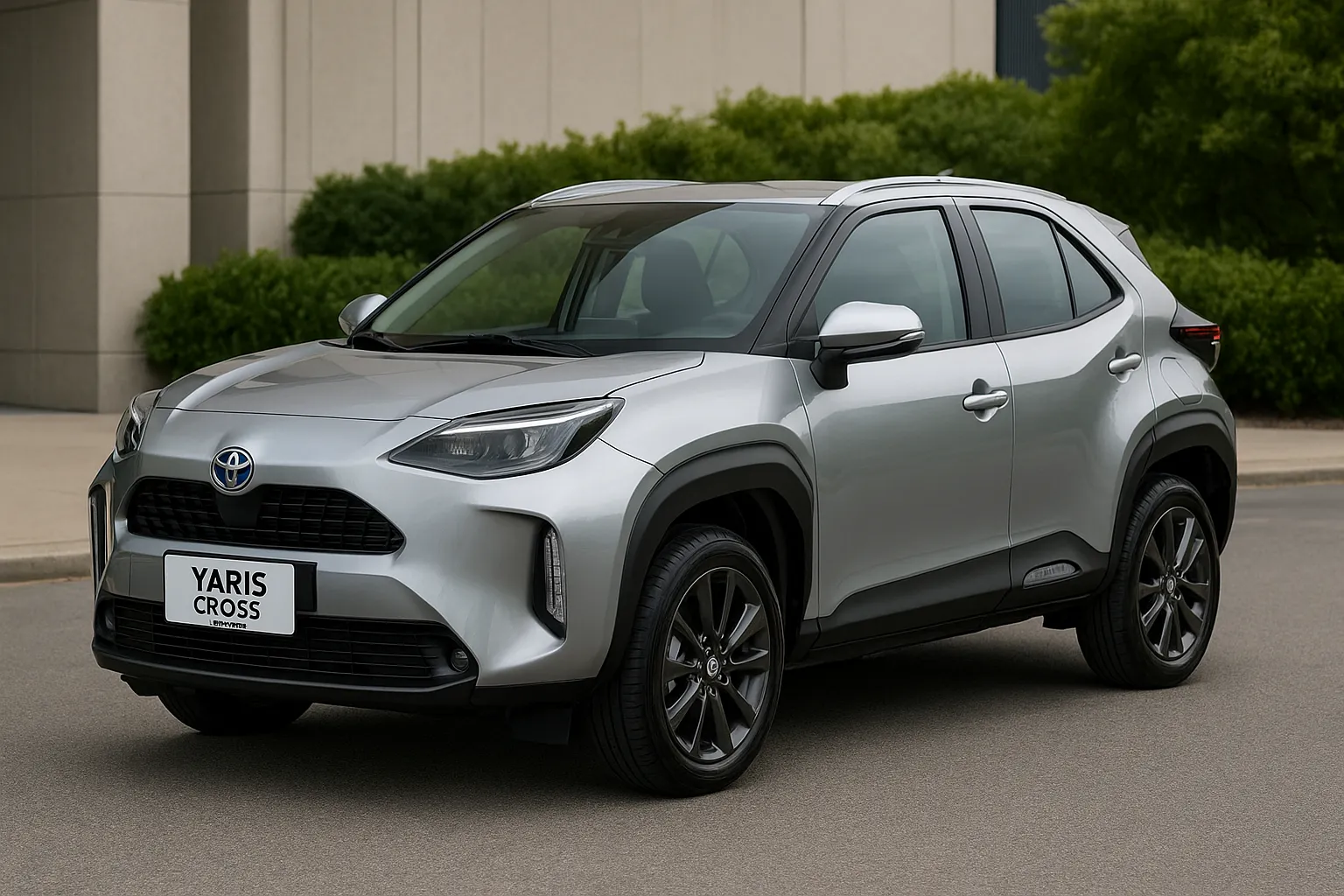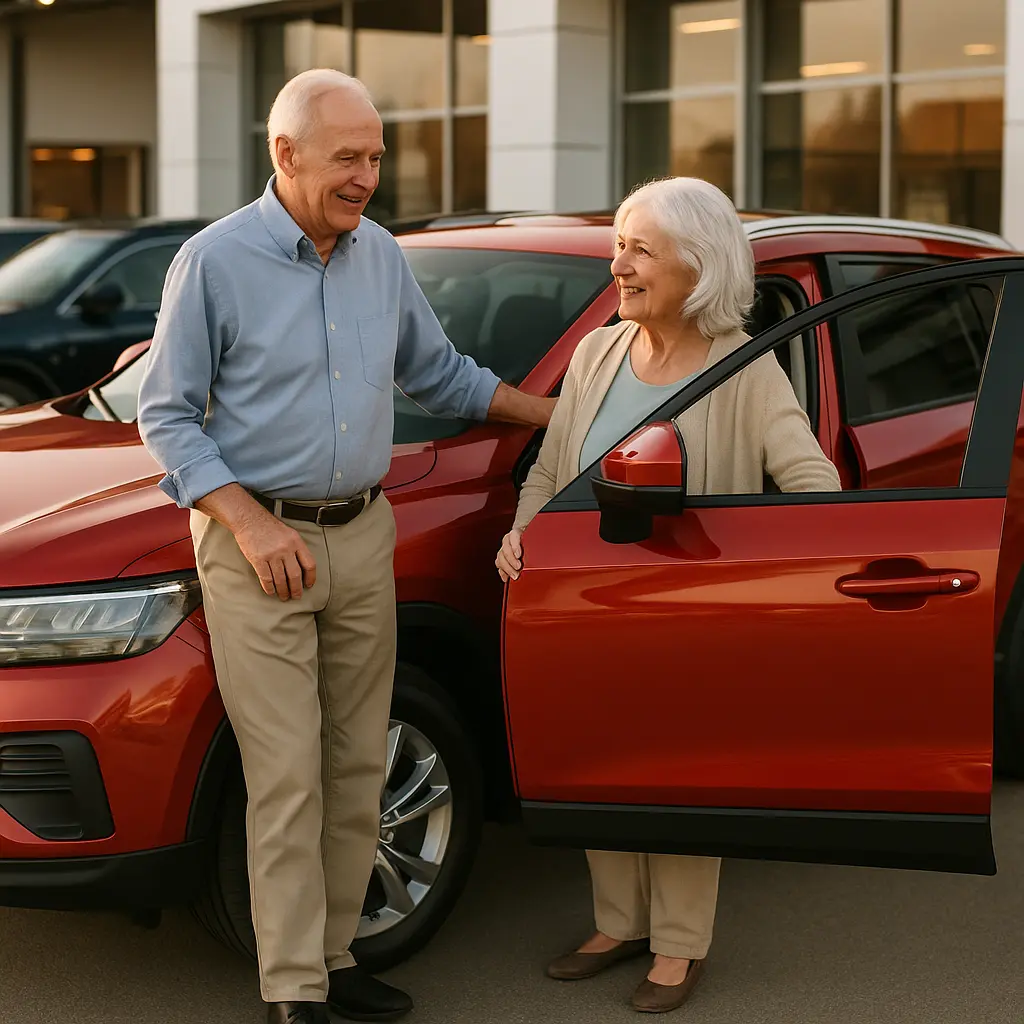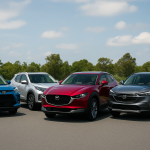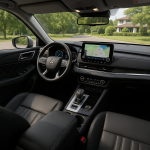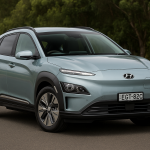Australia’s compact SUV segment has never been more competitive, especially with rising fuel prices and growing demand for eco-conscious mobility. Enter the 2025 Toyota Yaris Cross Hybrid — a city-savvy SUV with just the right mix of style, efficiency, and practicality.
Following our detailed test drive across city streets, highways, and suburban lanes, this blog gives you everything you need to know: driving impressions, specs, fuel economy, tech features, and whether this compact SUV is worth your money in 2025.
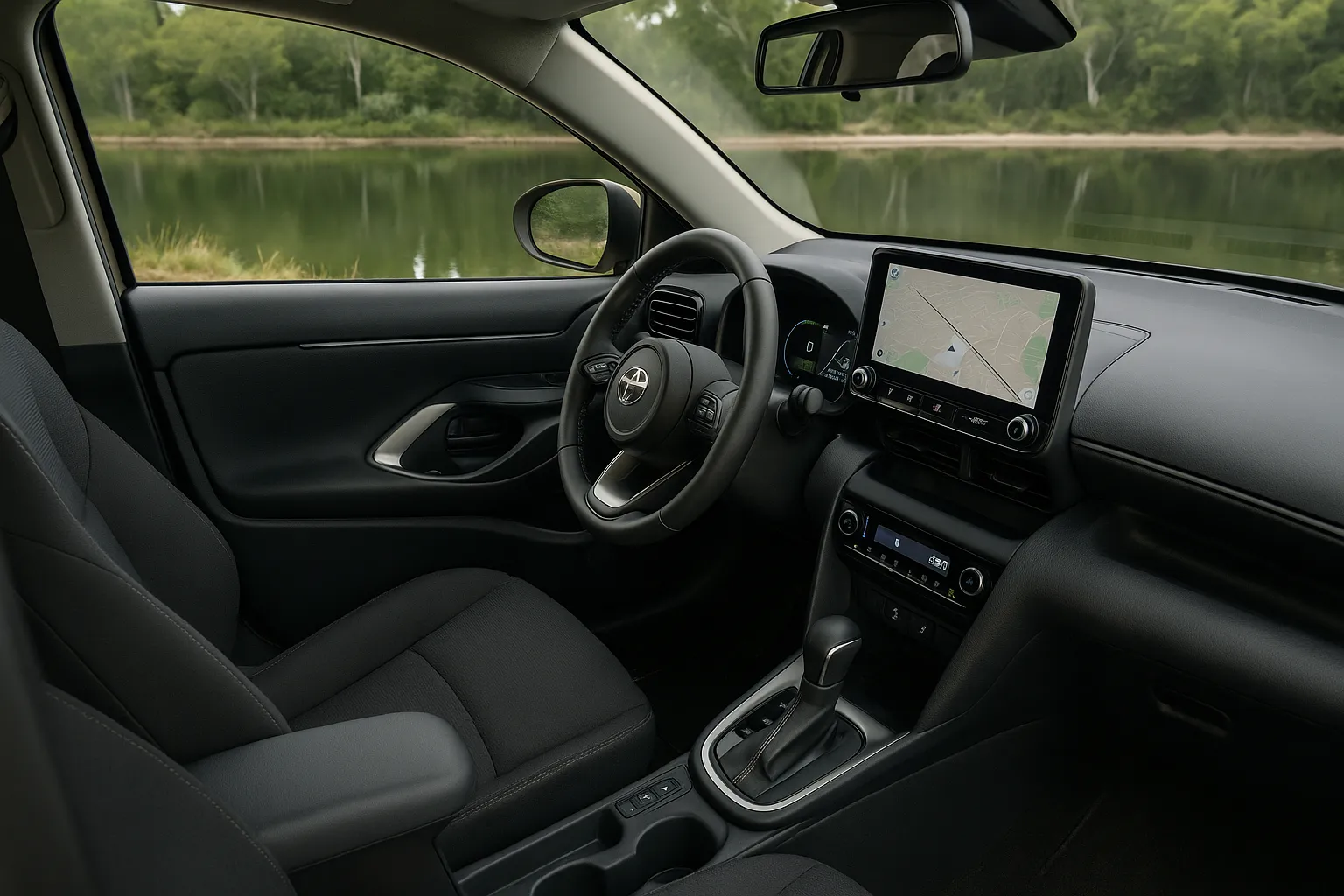
Quick Overview: What Is the Toyota Yaris Cross Hybrid?
The Toyota Yaris Cross Hybrid is essentially a raised, SUV-style version of the popular Yaris hatchback, powered by Toyota’s tried-and-true petrol-electric hybrid system.
- Platform: Toyota GA-B (same as Yaris hatch)
- Powertrain: 1.5L three-cylinder hybrid with e-CVT
- Drivetrain: Front-wheel drive (AWD available on some variants)
- Competitors: Mazda CX-3, Hyundai Kona, Kia Stonic, Honda HR-V
While its styling gives it a more rugged SUV look, it retains the nimbleness and efficiency of a hatchback — a true sweet spot for urban Aussies.
Design & Dimensions: Compact but Confident
The Yaris Cross Hybrid’s design strikes a balance between funkiness and utility. The 2025 model brings some subtle updates:
Exterior Highlights:
- New LED headlight design
- Refreshed grille and front bumper
- Chunky black cladding for rugged appeal
- 16–18-inch alloy wheel options
- Roof rails and rear spoiler for sporty flair
Dimensions:
- Length: 4180mm
- Width: 1765mm
- Height: 1590mm
- Wheelbase: 2560mm
While it’s small by SUV standards, the upright stance, wide grille, and elevated ground clearance (170mm) make it look like more than just a city car.
Interior Comfort and Practicality
Despite its compact footprint, the Yaris Cross Hybrid offers a surprising amount of cabin space and clever packaging.
Cabin Feel:
- Minimalist dashboard with soft-touch materials
- 7- or 9-inch infotainment touchscreen depending on variant
- Updated digital instrument cluster
- Comfortable cloth or synthetic leather seats (variant dependent)
Space & Practicality:
- Rear Seat Room: Suitable for 2 adults or 3 kids
- Boot Space: 390L (with seats up), up to 1100L (seats down)
- Storage: Deep centre console, bottle holders in all doors, underfloor boot storage
You’ll appreciate how Toyota’s hybrid battery is tucked under the rear seat, preserving boot space unlike some rivals.
Tech Features: All the Right Gear
Tech in the 2025 Yaris Cross Hybrid is streamlined yet smart. Here's what you get:
Standard Features:
- Wireless Apple CarPlay & Android Auto
- Digital instrument cluster (fully digital on top trims)
- Auto climate control
- Smart entry & push-start
- Rear camera with dynamic guidelines
Higher Trim Features:
- Satellite navigation
- 360-degree camera (GX and GXL)
- JBL premium sound system (on Urban variant)
- Wireless phone charger
- Heads-up display
Toyota keeps things functional, intuitive, and reliable — not flashy, but everything works well.
Performance & Driving Experience: Our Test Drive Verdict
Engine & Powertrain:
- Hybrid System: 1.5L 3-cylinder petrol + electric motor
- Total Output: 85kW combined
- Transmission: e-CVT (electronically controlled continuously variable transmission)
- Fuel Type: 91 RON unleaded
Driving Impressions:
We drove the Yaris Cross Hybrid across Melbourne’s urban core and surrounding freeways. Here's how it felt:
In the City:
- Exceptionally smooth low-speed response thanks to the electric motor
- One-pedal-like feel in stop-start traffic
- Tight 5.3m turning circle — perfect for U-turns and tight parking
On the Highway:
- Holds 100 km/h comfortably without fuss
- Slight engine drone when accelerating hard
- Adaptive cruise control works smoothly
Ride Quality:
- Softer suspension tunes soak up road bumps well
- Great visibility and small footprint makes it unintimidating to drive
- Cabin insulation has improved over earlier models
Overall, it's not sporty — but it’s safe, predictable, and very user-friendly.
Fuel Efficiency – Toyota's Hybrid Magic
This is where the Yaris Cross Hybrid truly shines.
- Claimed Fuel Economy: 3.8L/100km (FWD)
- Real-World Test Average: 4.2L/100km (mixed city/freeway)
- Tank Size: 36L
- Range: Over 800 km per tank
For an SUV with usable space and raised ground clearance, this is impressive — and it beats most petrol-only rivals hands down.
Safety First: Toyota Safety Sense Standard Across Range
Every Yaris Cross Hybrid in 2025 comes with Toyota's full Safety Sense suite, making it one of the safest compact SUVs around.
Key Features:
- Autonomous Emergency Braking (AEB)
- Pedestrian & Cyclist Detection
- Lane Departure Alert with Steering Assist
- Lane Trace Assist (semi-autonomous centering)
- Adaptive Cruise Control
- Blind Spot Monitor (on higher variants)
- Rear Cross-Traffic Alert
- Traffic Sign Recognition
ANCAP Safety Rating:
- 5 stars (tested in 2022, applies to 2025 with no structural changes)
This makes it a great pick for first-time drivers, small families, and elderly drivers alike.
Variants & Pricing in Australia – 2025 Update
Variant Line-Up:
- GX Hybrid FWD – entry-level
- GXL Hybrid FWD or AWD – mid-range
- Urban Hybrid FWD or AWD – top-tier
Price Guide (Driveaway, Estimated Q3 2025):
- GX Hybrid FWD: From $31,990
- GXL Hybrid AWD: Around $36,500
- Urban Hybrid AWD: Around $39,990
Even fully loaded, it stays under the $40K mark — solid value when you consider fuel savings, standard safety, and Toyota’s legendary reliability.
Warranty & Ownership Costs
- Warranty: 5-year unlimited km (extendable to 7 years if serviced with Toyota)
- Battery Warranty: 10 years (conditional health check)
- Capped Price Servicing: Approx. $250 per service for first 5 services
- Service Intervals: 12 months / 15,000 km
Toyota’s hybrid system is also known for long-term durability, giving peace of mind to budget-conscious buyers.
Competitor Comparison – How It Stacks Up
| Model | Powertrain | Fuel Economy | Boot Space | Price (Driveaway) |
|---|---|---|---|---|
| Yaris Cross Hybrid | Hybrid (FWD/AWD) | 3.8L/100km | 390L | From $31,990 |
| Mazda CX-3 | Petrol only | 6.3L/100km | 264L | From $29,990 |
| Hyundai Kona Hybrid | Hybrid (FWD) | 4.2L/100km | 374L | From $35,000 |
| Honda HR-V e:HEV | Hybrid (FWD) | 4.3L/100km | 304L | From $37,000 |
Verdict? The Yaris Cross Hybrid wins on running costs, safety gear, and Toyota’s hybrid legacy.
Pros and Cons Summary
✅ Pros:
- Best-in-class fuel economy
- Toyota reliability & resale value
- Loaded safety features
- Compact, easy to park
- AWD availability (rare in this class)
❌ Cons:
- Not very powerful (85kW)
- Smallish rear seat space
- Some hard plastics inside
- Limited towing capacity (750kg braked)
Who Should Buy the 2025 Yaris Cross Hybrid?
The 2025 Toyota Yaris Cross Hybrid is ideal for:
- Urban dwellers who need a compact, frugal, and easy-to-drive SUV
- First-time car buyers or downsizers wanting simplicity and safety
- Eco-conscious Australians wanting to reduce fuel spend without going full EV
- Retirees or families looking for a second car that's cheap to run
Conclusion: Big Value in a Small Package
Toyota has done it again — the 2025 Yaris Cross Hybrid combines hybrid fuel savings, SUV practicality, and user-friendly tech into one neat urban package. It’s not flashy, but it doesn’t need to be.
If you’re in the market for a budget-friendly hybrid SUV in Australia that ticks all the boxes without breaking the bank, the Yaris Cross Hybrid is well worth a test drive.
Leave a comment
Your email address will not be published. Required fields are marked *


